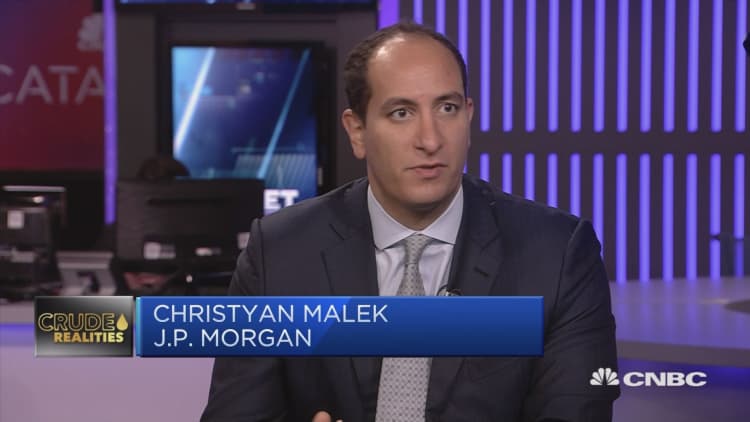Oil traders expecting steep production losses from one of the world's largest producers are likely to be underestimating the severity of the country's crisis, according to analysts at RBC Capital Markets.
In a research note published Monday, analysts at the global investment bank said while oil production in Venezuela is poised to "plunge" in 2018, the extent of its losses could be far worse than investors were anticipating.
"Given the severity of the crisis, we think market participants would be unwise to assume that Venezuelan production losses will simply mirror the several hundred-thousand barrels per day losses seen in 2014," Helima Croft, head of global commodity strategy at RBC Capital Markets, said in the note.
Instead, the analysts said Caracas' production losses could be at least several hundred-thousand barrels per day higher — and may even plausibly approach levels last witnessed during the Venezuelan oil strike in 2002.
'Piggy bank' of the military
Venezuela, one of Latin America's leading oil producers, has witnessed steadily declining production levels in recent years as the oil-dependent state slogs through an economic crisis. The turmoil has been precipitated by years of government mismanagement and exacerbated by a prolonged oil price slump.
The major oil-producing nation has been struggling with hyperinflation, recession, food shortages and attempts to restructure foreign debt in order to avoid a default. This has put its entire economy, including its nationalized oil industry that accounts for most of the country's export revenues, in jeopardy.
The price of oil collapsed from near $120 a barrel in June 2014 due to weak demand, a strong dollar and booming U.S. shale production. Several stressed producer states have proven to be "ill-equipped" to endure the economic and political calamity caused by a downturn in oil prices, RBC Capital markets analysts said, and Venezuela is a prime example.
In December 2002, almost half the workers at state-run oil company Petroleos de Venezuela (PDVSA) went on strike in bid to trigger an early general election. The move virtually halted oil production for around two months before the government gradually reestablished control over PDVSA, subsequently firing approximately 40 percent of its workers.
RBC Capital Markets analysts said there was also a risk PDVSA could become the "piggy bank" of the military. In November, Venezuelan President Nicolas Maduro appointed Manuel Quevedo, a former housing minister and major general in the national guard (one of the country's armed forces), as the new oil minister and head of PDVSA.
Oil prices to 'ebb and flow' in 2018
In the research note, the analysts projected oil prices would likely "ebb and flow" over the coming months while "geopolitically driven supply disruptions" were likely to be much more "consequential" in 2018.
At the start of the month, Goldman Sachs lifted its Brent price forecast for next year to $62 a barrel and its WTI projection to $57.50 a barrel. The revisions were up from $58 a barrel and $55 a barrel respectively. The U.S. bank said a stronger-than-anticipated OPEC-led commitment to extend production cuts would support prices through 2018.
Brent crude traded at around $63.56 on Monday morning, up 0.52 percent, while U.S. crude was trading at $57.64, up 0.59 percent.

— CNBC's Tom DiChristopher and Holly Ellyatt contributed to this report.


